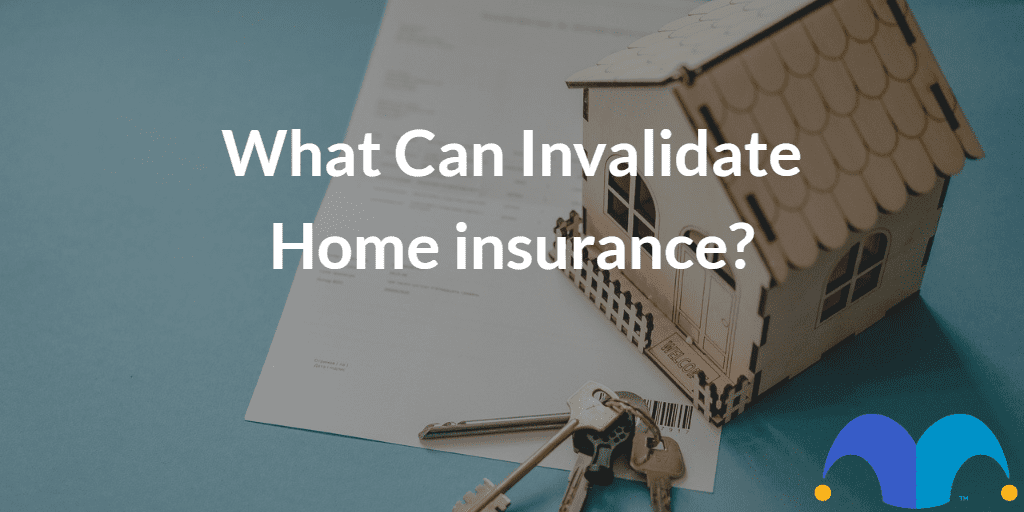When it comes to protecting your home, having proper insurance coverage is crucial. However, it’s important to understand that there are certain factors that can invalidate your house insurance policy. Invalidating your insurance means that you have provided incorrect information to your insurer, which can result in your claim being refused or your policy being voided. In this article, we will explore various scenarios that can potentially invalidate your house insurance and provide you with the necessary information to avoid any pitfalls.
Key Safe and Home Insurance
A key safe can be a convenient solution for storing your keys securely. However, it’s important to note that not all key safes are created equal. While some insurers may recommend a specific type of key safe that they recognize as being particularly secure, it’s essential to ensure that you operate it properly. If you leave your key safe open and become a victim of burglary, your insurer may invalidate your policy and refuse to pay out on any claims. Additionally, if the code to your key safe is known by multiple individuals, it can also put your house insurance policy at risk of being invalidated.

Lost Keys and Home Insurance
Losing your keys can be a stressful experience, but it can also have implications for your home insurance coverage. If someone breaks into your home using a lost key, your insurance may not cover the resulting damages. According to the Association of British Insurers, evidence of forced entry is typically required for a claim to be accepted. If someone finds your lost keys and gains access to your home without any signs of forced entry, your insurer may refuse your claim. Similarly, if someone with access to your home, such as a neighbor or ex-partner, uses a key you’ve given them to steal your belongings, it may be considered an act of deception rather than theft, potentially resulting in a denied claim.
Unlocked Doors and Home Insurance
Leaving your door unlocked can be a security risk that may impact your home insurance coverage. Many home insurance policies require certain door locks to be fitted and locked whenever you leave your home. If a burglary occurs as a result of your door being left unlocked, your insurer could refuse your claim. It’s crucial to ensure that everyone who has a key to your home understands the importance of keeping the doors locked at all times. If you have given someone a key, make sure they notify you immediately if it is lost so that you can take appropriate precautions, such as changing the locks if necessary.
Unoccupied Homes and Home Insurance
Leaving your home unoccupied for an extended period can also invalidate your house insurance. Most policies have a limit on the number of consecutive days you can be away, typically around 30 days. If you need to make a claim and your insurer discovers that your home has been left unoccupied beyond the specified limit, your claim may be rejected. This is especially true during the winter months when the risk of burst pipes causing damage in unheated homes is higher. If you anticipate leaving your house unoccupied for longer than the limit outlined in your policy, it is advisable to speak to your insurer and inquire about unoccupied property insurance.
DIY Work and Home Insurance
Engaging in do-it-yourself (DIY) projects is a common practice for homeowners. While minor DIY tasks such as putting up a shelf or hanging pictures are unlikely to invalidate your house insurance, more extensive projects that increase the value of your home may require you to inform your insurer. For example, if you undertake a new extension that raises the value of your property, it could potentially impact the cost of repairing any future damage covered by your insurance. Additionally, larger DIY projects can make your home less secure, making it more attractive to burglars. It’s important to consider the potential risks and costs associated with significant DIY work and inform your insurer accordingly.
Renting Out a Room and Home Insurance
Renting out a room in your home can be an effective way to generate additional income. However, it’s crucial to inform your insurer about this arrangement. While getting a lodger typically does not invalidate your house insurance, failing to notify your insurer can result in a denied claim, even if the issue has no direct connection to the lodger. Some insurers may allow you to rent out part of your home to a tenant, but it’s important to be aware that this may increase your annual insurance costs. Depending on the nature of the agreement, you may also need to consider purchasing landlord insurance. It is advisable to review your policy and consult with your insurer to understand the specific implications and requirements.

Over-Valuing Contents and Home Insurance
When insuring your home contents, it’s important to provide an accurate valuation. Over-insuring your contents can lead to policy invalidation due to misrepresentation. If the insurer is required to pay out more than the actual value of the damaged or stolen items, it can result in complications. To avoid this, it is recommended to specify any high-risk items individually and then calculate a realistic value for the remaining contents. Utilizing a home contents calculator can assist in this process and ensure that you have adequate coverage without risking policy invalidation.
Using Your Home for Business and Home Insurance
If you operate a business from your home, it is essential to inform your insurer. Standard buildings and contents insurance may not provide adequate coverage for business-related activities. Additionally, if you use expensive equipment or store stock at your home, your regular contents insurance may not cover these items. It is crucial to discuss your situation with your insurer and understand your options. Depending on the nature of your business, you may need to consider obtaining specialized business insurance or making adjustments to your existing policy.
Failure to Update Your Insurer
Keeping your insurer informed about any changes is essential to maintain the validity of your house insurance policy. If you fail to notify your insurer of significant changes, such as moving to a new house, changing the use of your home, or obtaining a criminal conviction, it can result in a denied claim or even a voided policy. For example, if you inform your insurer that you have a burglar alarm and later decide not to use it or fail to replace a broken one, not notifying your insurer about these changes can jeopardize your coverage. It is crucial to be proactive in updating your insurer whenever significant changes occur.

Conclusion
Understanding what can invalidate your house insurance is vital for ensuring that you have proper coverage and can successfully make a claim when needed. Factors such as using a key safe incorrectly, losing your keys, leaving your doors unlocked, leaving your home unoccupied, undertaking significant DIY work, renting out a room, over-valuing your contents, using your home for business, and failing to update your insurer can all have implications for your insurance coverage. By being aware of these potential pitfalls and taking appropriate measures, you can avoid policy invalidation and ensure that you are adequately protected. Remember to review your policy regularly and consult with your insurer to address any concerns or questions you may have.
